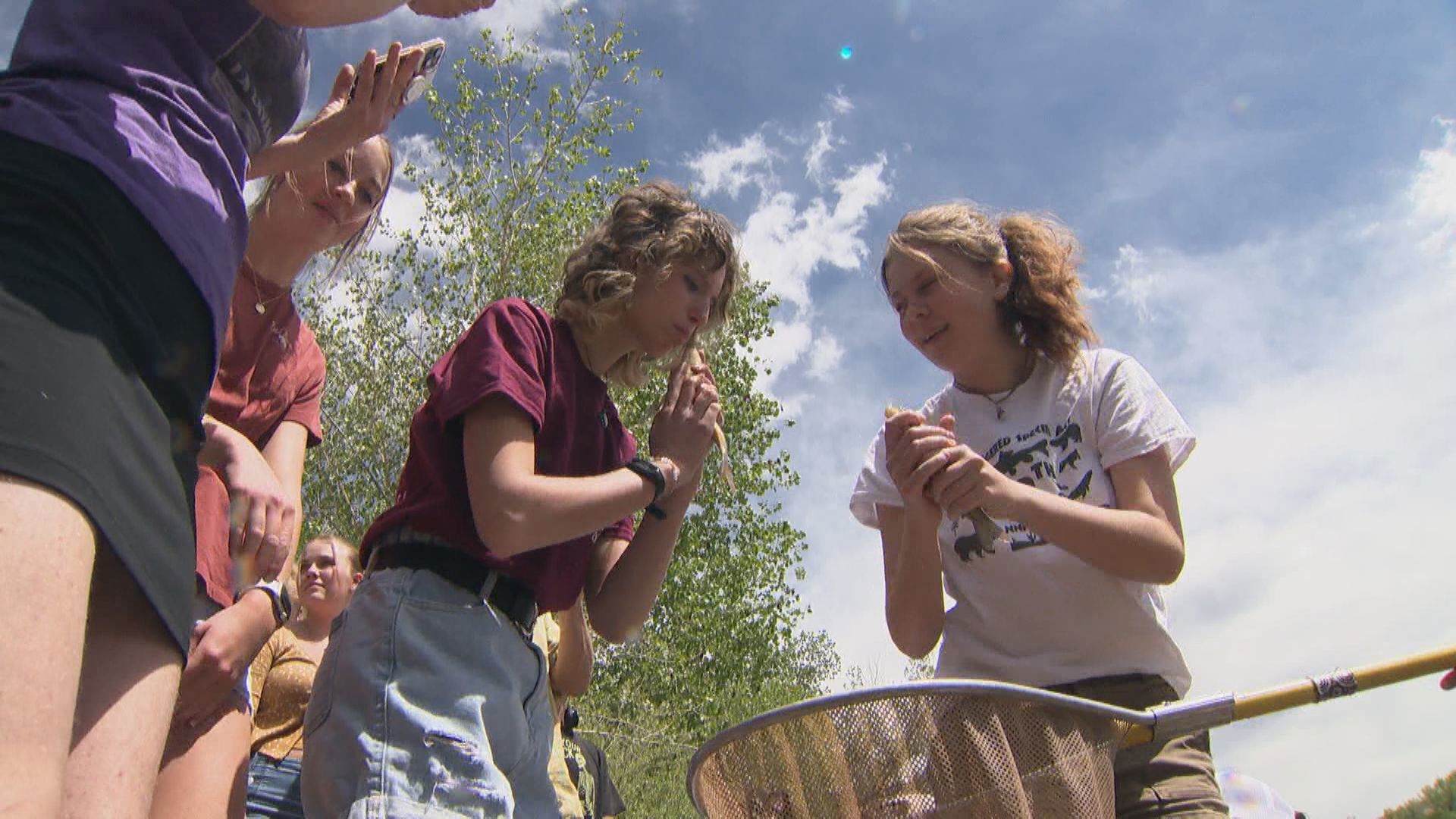PALISADE, Colo. — Preserving endangered species isn't just for the pros.
Pat Steele, a science teacher at Palisade High School, has created a fish hatchery. He's working together with his students to help save the razorback sucker, an endangered species of fish.
"It's a lot of work, but it's fun work," said Kiera Stephen, a hatchery technician and Palisade High School senior.
Stephen works at the hatchery. She's there nearly every day.
"It means a lot because not only am I aware that I'm doing something to help with the conservation of these fish, and that I'm a part of something bigger than myself," Stephen said.
The science and biology lessons here are hands-on. Stephen and fellow hatchery tech Kale Potter spend school days taking care of these fish, raising them and teaching their classmates until the fish are ready to be released.

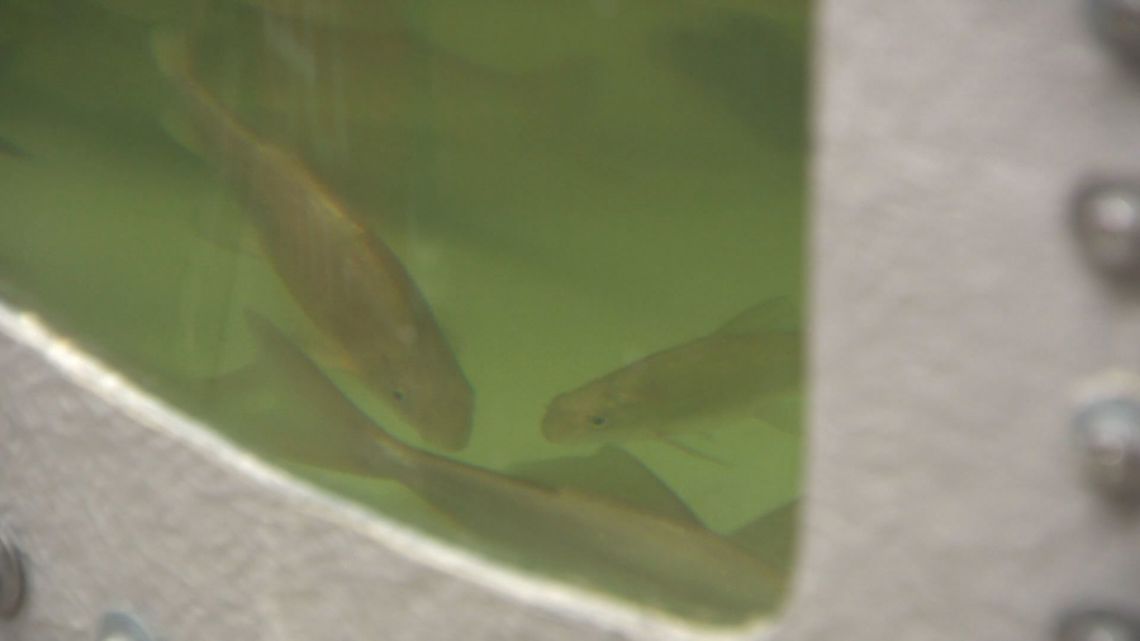
"My family will tell you any time we drive past the river, I go, 'there are my little fishies! There's my fish!'" Stephen said.
They're not just any fish. They're raising the razorback sucker, an endangered species. And after years spent raising hundreds of these guys, they've become Palisade High School's unofficial mascot.
"The razorback sucker became our new pet," Steele said. "And our students care a lot about those fish and work really hard every day to make sure our fish grow well and grow healthy so we can release them into the Colorado River and help to repopulate that population."
Steele and the students take special care with raising these slippery suckers.

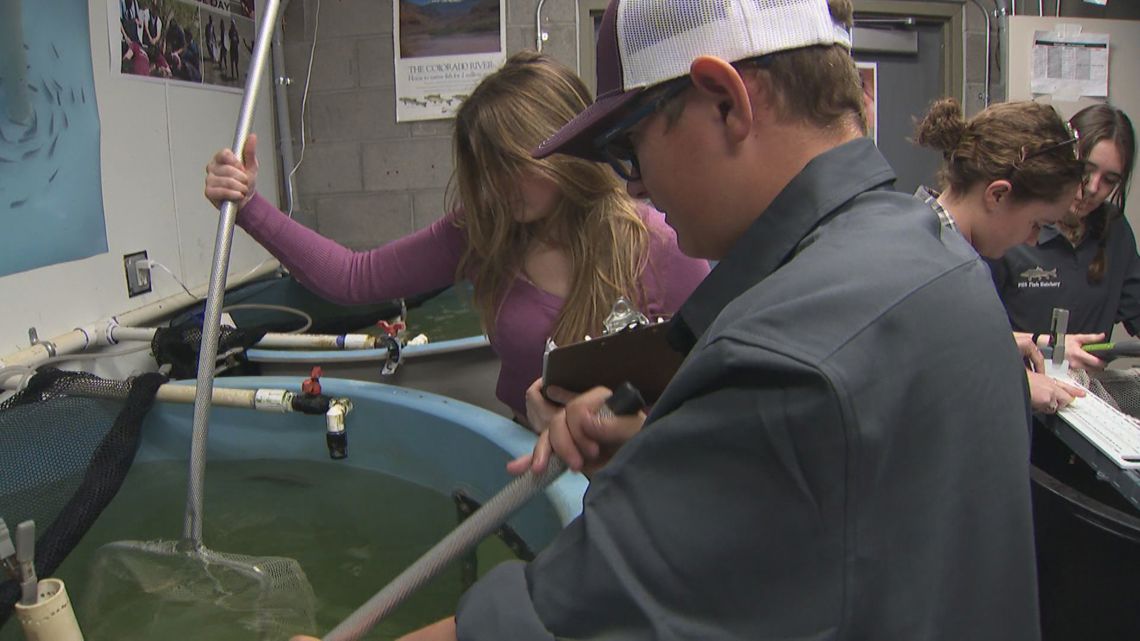
"They know that they've had a part of the process of trying to bring an endangered species back," Steele said. "And the ultimate goal is to get them off the endangered species list."
The U.S. Fish and Wildlife Service keeps a close eye on the hatchery's work.
On a cold March morning, the students helped Fish and Wildlife tag the fish with transponders, helping them measure, weigh and track the fish long after they've left their tanks.
"These fish live to 40 years, to be 40 years old, which is a really long time for a fish," Steele said. "And so I hope that these students, they go by the river or they drive over the bridge or whatever and can look down that river and know they had a part of bringing a species back from almost extinction."

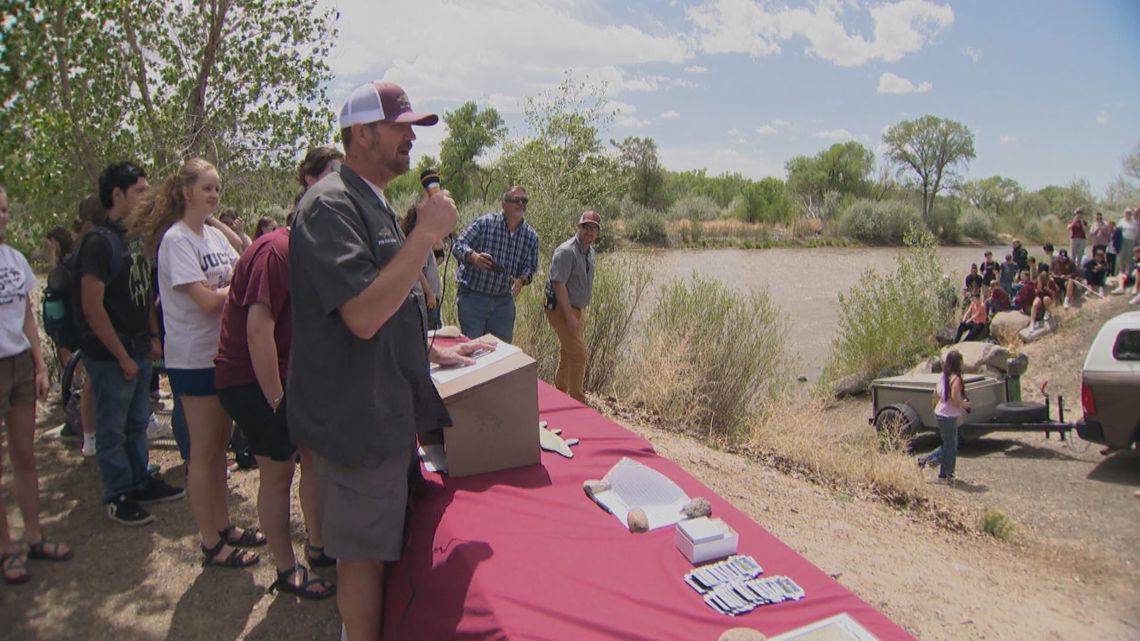
After months spent raising and caring for these fish, it was time to take them from their trusty tanks and drive them over to their new home. Down the road at Riverbend Park, students and community members crowded around the ramp to the Colorado River, ready for the release day tradition.
"We are getting ready to celebrate our 1,000th fish release today, and so we are really fired up about that," Steele said to the gathered crowd to cheers and applause. "They're primed and ready for you high school students."
Before the fish headed to their new home, they were gifted with a big, wet goodbye kiss. With one tightly-clutched smooch and a quick toss, the students helped send the fish off to their ancestral home.
"They have been swimming around right here in Palisade for upwards of 5 million years," said Mike Gross, a fish culturist with Ouray National Fish Hatchery in Grand Junction.
Gross helps keep an eye on the students and the razorback sucker populations, proud to help both grow throughout the year.
"This is absolutely the highlight of my career, watching the next generation actually take hold of a lot of these problems, and I couldn't be more proud of these kids," Gross said.

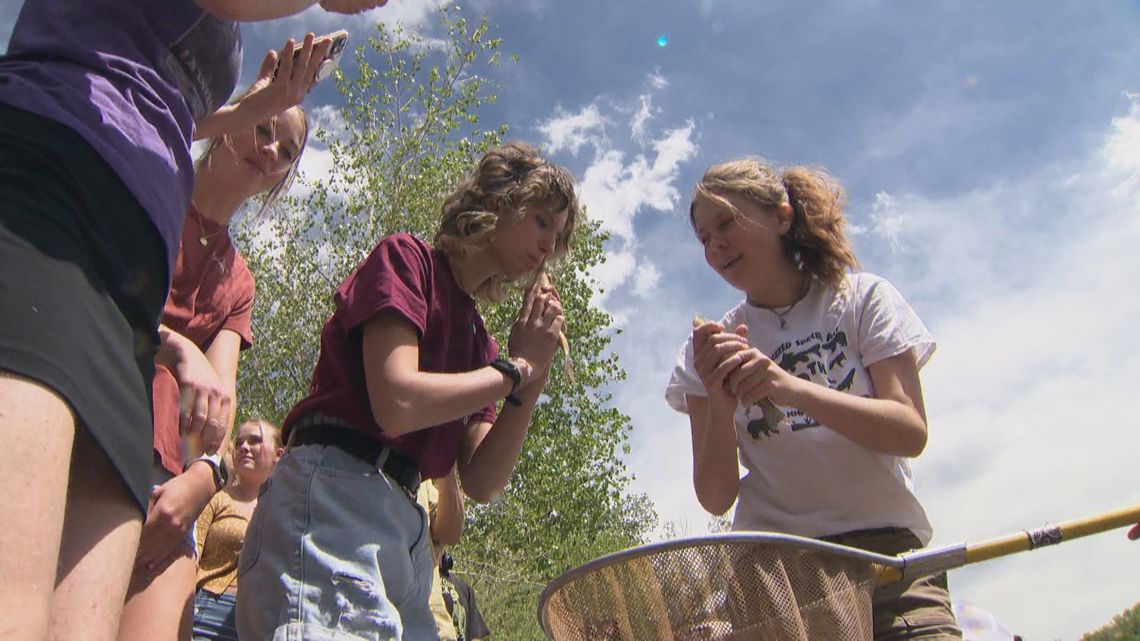
"Our goal is to get our students to really understand the importance of the Colorado River and the Colorado River system and all that touches it, from the fish that swim in it to the peaches that this river water grows here in Palisade," Steele said.
With every fish they raise and release, Steele hopes they're teaching kids the importance of protecting the world around them.
"It takes a village to raise a fish, which is kind of funny, but," Steele said, pausing as he held back tears. "Sorry. I'm a sap really at heart."
"It really means a lot to me. I know that I'm helping out the blood of Colorado and the river," Potter said.
After so many months of care, letting go isn't always easy.
"Because not only is it bittersweet -- these are my fish, I've been raising them for the past year -- but, to see all of my classmates get super excited about releasing these fish and being able to put them into the river is really rewarding," Stephen said.
So with a quick toss, a precious addition to the razorback sucker's population makes its way upstream, carrying with it the hopes that they'll be swimming through this river in the decades to come.
SUGGESTED VIDEOS: Education

